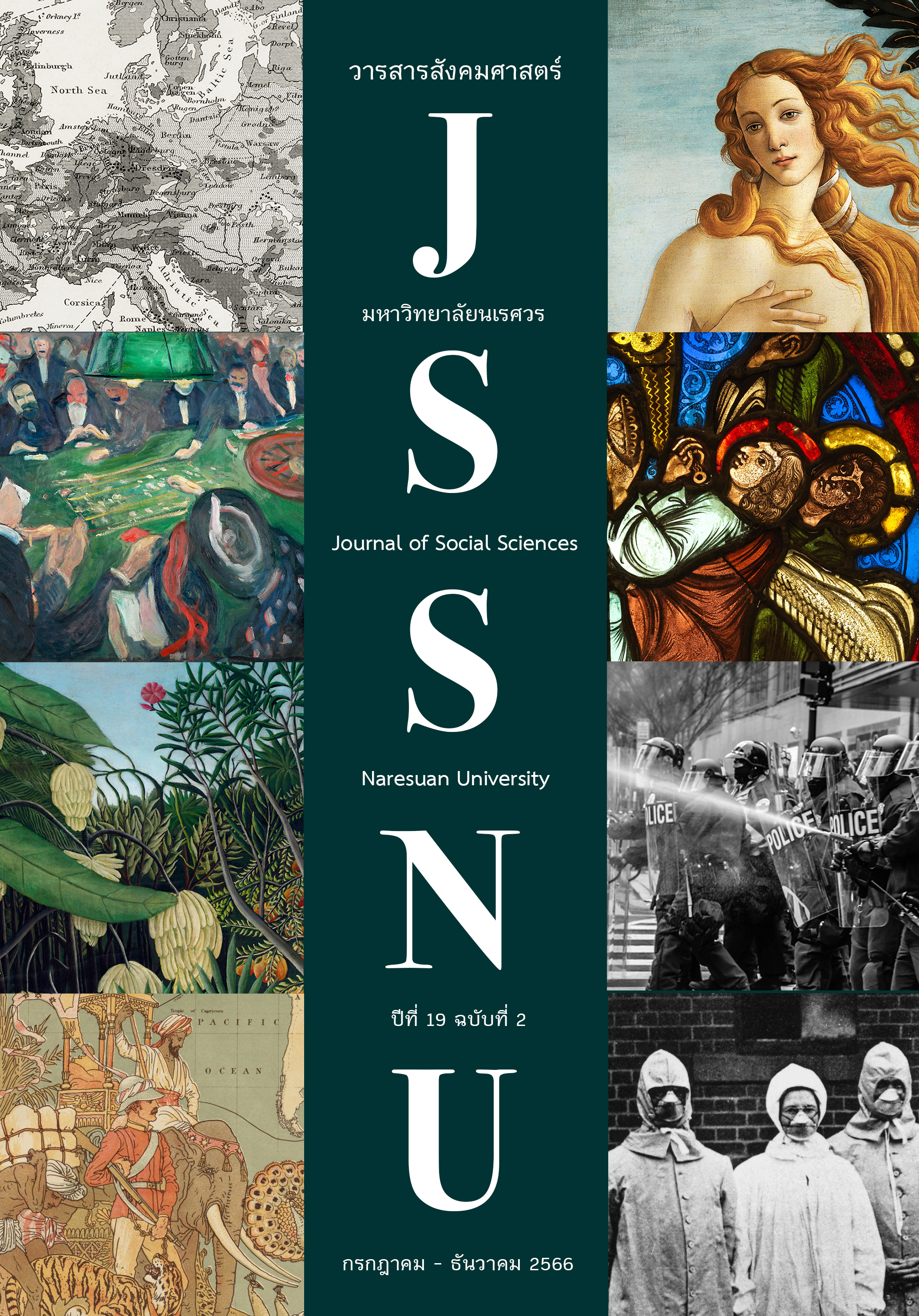Identity Concept in Classical Organizational Theory: A Systemic Conceptual Analysis of Frederick Taylor’s The Principle of Scientific Management
Main Article Content
Abstract
This article aims to study Frederick Taylor’s The Principle of Scientific Management as a case study for Stuart Albert and David Whetten’s CED framework. The author used an interpretative method to analyze the work for identity traces in Taylor’s writing. According to this experiment, there are traces of humanism related to the identity concept in many parts of the work. This should imply the main criticism of later scholars on Taylor's insistent of the ‘one-best-way’ method in the cost of the human condition in the workplace that is somewhat incorrect. Therefore, we could read Taylor’s work as part of the socio-economic context and relate the work as one of the ways to elevate human living conditions during his era.
Downloads
Article Details

This work is licensed under a Creative Commons Attribution-NonCommercial-NoDerivatives 4.0 International License.
References
Albert, S., & Whetten, D. A. (1985). Organizational identity. Research in Organizational Behavior, 7, 263-285.
Ashforth, B. E. (2016). Exploring identity and identification in organizations: Time for some course corrections. Journal of Leadership and Organizational Studies, 23(4), 361-373.
Ashforth, B. E., & Mael, F. (1989). Social identity theory and the organization. Academy of Management Review, 14(1), 20-39.
Caldari, K. (2007). Alfred Marshall’s critical analysis of scientific management. The European Journal of the History of Economic Thought, 14(1), 55-78.
Cornelissen, J. P. (2002). On the “Organizational identity” metaphor. British Journal of Management, 13, 259-268.
Farquhar, H. H. (1919). Positive contributions of scientific management. The Quarterly Journal of Economics, 33(3), 466-503.
Gioia, D. A. (1998). From individual to organizational identity. In D. A. Whetten & P. C. Godfrey (Eds.), Identity in organizations: Building theory through conversations (pp. 17-31). Thounsand Oaks, CA.: SAGE Publications.
Harquail, C. V., & King, A. (2010). Constructing organizational Identity: The role of embodied cognition. Organization Studies, 31(12), 1619-1648.
Hatch, M. J., & Schultz, M. (2002). The dynamics of organizational identity. Human Relations, 55(8), 989-1018.
He, H., & Brown, A. D. (2013). Organizational identity and organizational identification: A review of the literature and suggestions for future research. Group and Organization Management, 38(1), 3–35.
Henderson, K. M. (1969). Comparative public administration: The identity crisis. Journal of Comparative Administration, 1(1), 65–84.
Jin, S. (2015). A new paradigm of organizational identity and organizational identification. Journal of Business and Economics, 6(9), 1561–1569.
Jittaruttha, C. (2018). Trissadee ongarn: Prachaya krabuantas lae neaw kid (in Thai). [Organizational theory: Philosophy, paradigm, and approaches] (2nd ed). Bangkok: Chulalongkorn University Press.
Keir, M. (1918). Scientific management simplified. The Scientific Monthly, 7(6), 525-529.
McMillan, C. (2019). Organizational identity, corporate strategy, and habits of attention: A case study of Toyota. In O. L. Emeagwali (Ed.), Strategic management: A dynamic view (pp.1-20). London: IntechOpen.
Nelson, D. (1992). A mental revolution: Scientific management since Taylor. Ohio: Ohio State University Press.
Nuopponen, A. (2010). Methods of concept analysis: Towards systematic concept analysis. LSP Journal, 1(2), 5-14.
Nuopponen, A. (2011). Methods of concept analysis: Tools for systematic concept analysis. LSP Journal, 2(1), 4-15.
Oliver, D., & Roos, J. (2004). Constructing organizational identity (Research report). Lausanne, Switzerland: Imagination Lab Foundation.
Pheungphusakul, A. (2003). Attalak: Karn tob tuan trissadee lae kroab neaw kid (in Thai). [Identity: A revision of theory and approach]. Bangkok: National Research Council of Thailand.
Pratt, M. G. (2003). Disentangling collective identities. In J. Polzer (Ed.), Identity issues in groups (pp. 161-188). N.P.: Emerald Group Publishing Limited.
Puusa, A. (2006). Conducting research in organizational identity. Electronic Journal of Business Ethics and Organization Studies, 11(2), 24-28. Retrieved from http://ejbo.jyu.fi
Raadschelders, J. C. N. (2010). Identity without boundaries: Public administration’s canon(s) of integration. Administration and Society, 42(2), 131-159.
Ravasi, D., & van Rekom, J. (2003). Key issues in organizational identity and identification theory. Corporate Reputation Review, 6(2), 118-132.
Rutgers, M. R. (1997). Beyond Woodrow Wilson: The identity of the study of public administration in historical perspective. Administration and Society, 29(3), 276-300.
Rutgers, M. R. (1998). Paradigm lost: Crisis as identity of the study of public administration. International Review of Administrative Sciences, 64(4), 553-564.
Schachter, H. L. (1998). History and identity in the feld of public administration: An analysis from Public Administration Review. Administrative Theory & Praxis, 20(1), 16-27.
Shafritz, J. M., & Ott, J. S. (Eds.). (2001). Classics of organizational theory (5th ed). Orlando, FL: Harcourt College Publishers.
Taylor, F. W. (1919). The principle of scientific management. New York: Harper & Brothers Publishers.
Thompson, C. B. (1915). Scientific management in practice. The Quarterly Journal of Economics, 29(2), 262-307.
Tolman, E. C. (1943). Identification and the postwar world. Journal of Abnormal and Social Psychology, 38(2), 141-148.
Whetten, D. A. (2006). Albert and Whetten revisited: Strengthening the concept of organizational identity. Journal of Management Inquiry, 15(3), 219-234.
Whetten, D. A., & Godfrey, P. C. (Eds.). (1998). Identity in organizations: Building theory through conversations. Thounsand Oaks, CA.: SAGE Publications.
Yamashiro, Y. (2015). Conceptual expansion into organizational identity change. Annals of Business Administrative Science, 14(4), 193-203.


